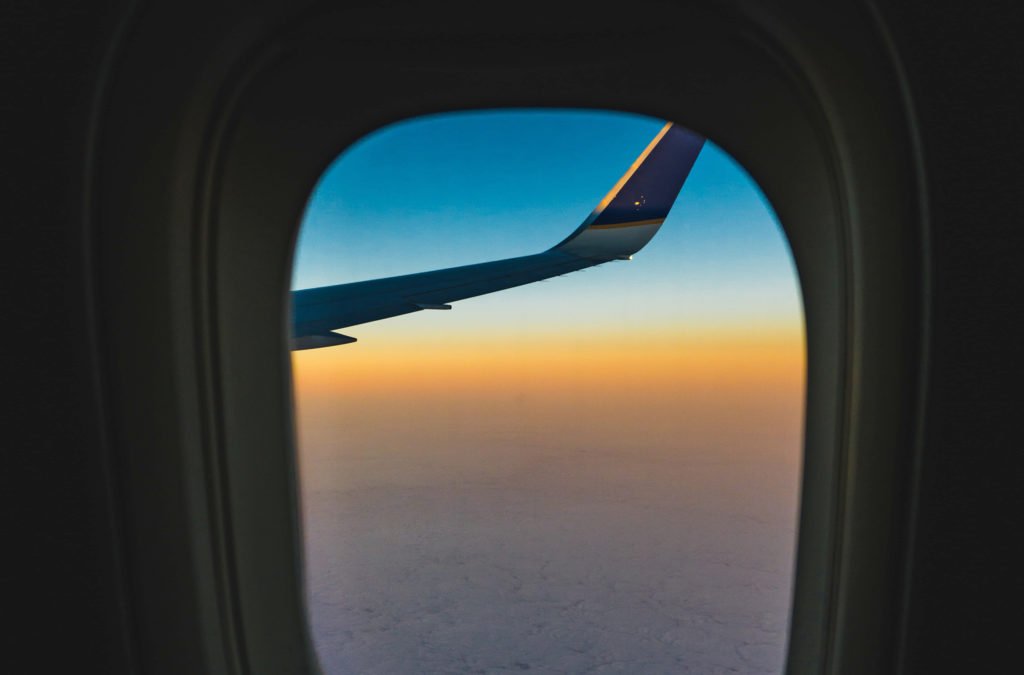Although air travel has been popular for a long time, scientists have only recently begun to study how it affects the human body.
Kiev. Ukraine. Ukraine Gate – March 31, 2021 – Tourism and Travel
Watching a movie on an airplane from a small screen, headphones, and with obstructions – can hardly be called a great aesthetic experience.
Those who travel a lot, however, have repeatedly noted that ordinary films can seriously arouse emotions.
Trivial comedies or even cartoons, such as “Bee Movie” or “Bridesmaids” or “The Simpsons”, suddenly make us shed a tear, which may not happen to us on earth.
Physicist and TV presenter Brian Cox, as well as musician Ed Sheeran, admit that this happens to them from time to time.
In a recent survey conducted at London’s Gatwick Airport, 15% of men and 6% of women said that watching a movie during the flight can make them feel better than other times.
9 unexpected facts about air travel
One well-known airline has even begun warning its passengers that watching movies onboard the plane can affect their emotional state.
Of course, there are many reasons why we live on a plane in a fragile state of mind: divorce from loved ones, excitement about the flight, homesickness.
However, there is evidence that the human psyche is influenced by the physical conditions of flight.
Data from several studies show that at 10,000 meters above the Earth’s surface inside a sealed metal tube, our brains are bizarre transformations.
Our moods may change, our senses may function differently, and our bodies may feel itchy.
Air travel affects our body and brain functions and in particular, it can alter our mental state
“In the past, this issue has not been studied, because for healthy people such things are not a big problem,” said Jochen Henckelbein, president of the German Society of Aerospace Medicine and deputy director of emergency care at the University of Cologne.
“However, as air travel is becoming cheaper and more common, there are now more travelers who are elderly or have health problems,” he added. This stimulates research in this area.
The interior of the plane is, without a doubt, an unusual environment for the human body.
Atmospheric pressure here, as in the mountains at an altitude of 2.5 km, the humidity is lower than in the arid deserts of the world. The air supplied to the cabin has a temperature of 10 degrees Celsius to cool the heat from human bodies and electronic devices.
What won’t the pilots tell the passengers?
Low air pressure reduces the amount of oxygen in the blood of passengers by 6-25%. If you are diagnosed with hypoxia in the hospital, you will be given an artificial injection right away.
However, on the plane, such a reduction, as a rule, does not harm healthy people. But for the elderly or those who have difficulty breathing, this could be a problem.
On the plane, we drink faster
However, even a slight lack of oxygen (hypoxia) can affect our ability to think.
With hypoxia, which is felt at 3.6 km above sea level, healthy adults have impaired memory, reduced ability to make calculations and make decisions.
This is why flight safety rules require pilots to wear oxygen masks if the air pressure in the cockpit rises above the level of 3.8 km.
Studies show that even at an altitude of 2.1 km, our reaction speed slows down and our mental faculties deteriorate somewhat.
Apparently, it is worth noting for those who like to play computer games on the fly.
“Although such changes are imperceptible to a healthy person, a passenger or a pilot, for people with health problems or even a cold, lack of oxygen in birds can exacerbate the lack of oxygen, which will greatly affect Cognitive abilities.”
In any case, lack of oxygen has another obvious effect on the brain – it causes fatigue.
The harsh aircraft tests are all for our safety
“As soon as the plane takes off, I feel sleepy and can fall asleep,” he said. It is certainly not a loss of consciousness due to lack of oxygen, but a result of hypoxia.”
However, if you manage to not sleep and wait for the crew to dim the lights in the cabin, you will be able to feel another result of the lower air pressure.
Human night vision deteriorates by 5-10% at an altitude of 1.5 km. The reason is that the photoreceptor cells in the retina that allow us to see in the dark cannot function properly without adequate oxygen.
Onboard, our taste buds are becoming less sensitive, which is why more spice is added to food on board.
Air travel confuses our other senses, too.
The low air pressure and dry air reduce our taste buds’ sensitivity to salty and sweet foods by about 30%.
A study commissioned by Lufthansa also found that the spicy flavors in tomato sauce tasted better in flight.
Dry air also reduces the intensity of our sense of smell, and as a result, food is fresh in taste. This is why airlines usually add more spices and salt to their meals.
However, the fact that our sense of smell becomes less intense has its advantages. After all, changes in atmospheric pressure often cause flatulence in passengers.
How to beat jet lag?
The scarce air causes other inconveniences. One recent experiment showed that after about three hours in an aircraft-like environment, people begin to complain of body discomfort.
Low humidity exacerbates this condition. So, it is not surprising that it is difficult for us to travel on a long journey.
Austrian researchers recently estimated that during long trips, our skin loses up to 37% of moisture, which can be itchy.
Low blood pressure and humidity also increase the effect of alcohol on the body and cause a worse hangover the next day.
And for those who suffer from aerophobia (fear of flying), there is another bad news.
How to get rid of the fear of flying?
“A lack of oxygen increases anxiety,” explains Valerie Martindale, who chairs the Space Medicine Association at Kings College London.
Air travel is not just a cause for concern. A number of studies have shown that plane rides have a negative effect on a person’s mental state, which increases stress and makes them less friendly.
Flying also drains our energy and impairs the body’s ability to resist stress.
Being on a plane has a negative effect on a person’s mental state.
“We have shown that pressure equivalent to an altitude of between 1.8 and 2.4 km can affect a person’s emotional state,” said Stephen Leg, a professor of human engineering at Messe University in New Zealand who studies the effects of mild hypoxia on the human body.
This may also explain our crying while watching movies on the plane. Although, as the scientific data show, serious changes in mental state occur at an altitude much higher than that at which passenger ships fly.
More recently, Professor Legg also found that a person’s mood can also be affected by dehydration, even if the degree is minimal.
He added, “So far, we know little about the impact of these factors on the mental state of people.”
However, some studies claim that being in the air, on the contrary, makes people happier.
Stephen Greening, a professor of film and media studies at the University of Washington, thinks the tears come from joy.
The film dispels the boredom from flying by plane, and the intimate viewing conditions from a small screen and in headphones allow us to immerse ourselves in our feelings, thus we do not cry out of sadness but of joy and consolation.
Mild hypoxia (hypoxia), which we feel during flight, causes drowsiness and fatigue.
Meanwhile, Jochen Henckelbein has discovered another unexpected effect of air travel.
A study he conducted with colleagues at the University of Cologne showed that low air pressure has a bad effect on our immune system.
Where does the lost luggage go?
“When we catch a cold or the flu while traveling, we often explain it through climate change, although the real cause may be a weak immune system. But this hypothesis still needs to be tested.”
If air travel weakens our immunity, it also affects our mood. It is known that the side effects of diseases of the immune system are mostly depression.
“Even with a vaccine, our bodies can respond to a deteriorating mood for up to two days,” said Ed Palmor, chair of the Department of Psychiatry at the University of Cambridge, who studies the effects of immune system disorders on a person’s mental state.
“A 12-hour trip to the other side of the world could have the same effect.”
Read also: A Trip To the Statue of Liberty
Source: Ukrgate







